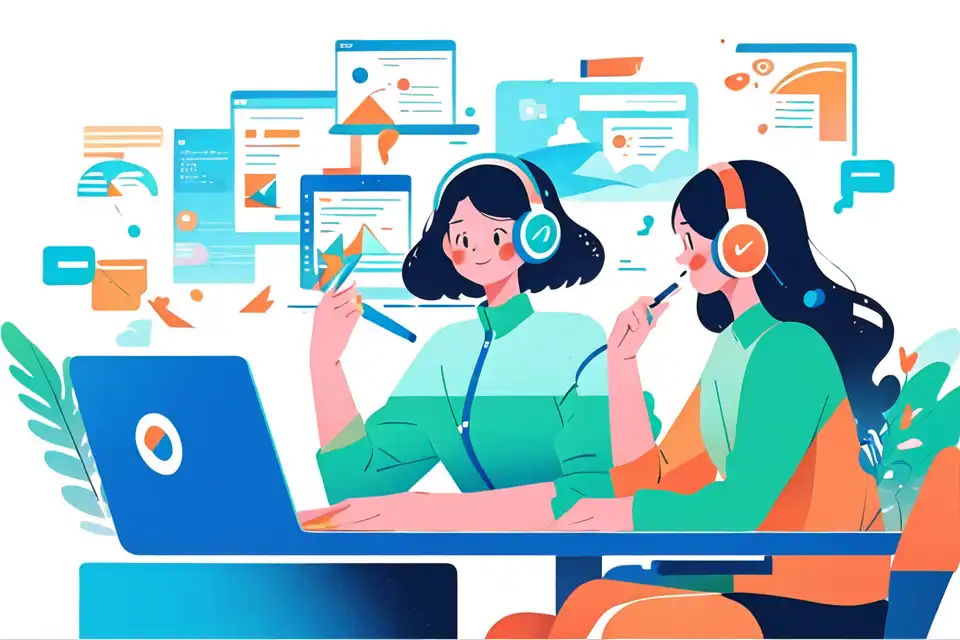Interview Questions for Mobile App Testers (with Top Questions and Answers)
Mastering the Art of Job Interviews for interview questions for mobile app testers: Job Interview Examples and Insights
Try Lark for Free
The mobile app industry has experienced remarkable growth in recent years, paving the way for increased demand for skilled mobile app testers. Whether you are an experienced professional aiming to advance in this field or a newcomer aspiring to pursue a career in mobile app testing, it is crucial to grasp the essential aspects of the role and understand how to excel in interviews.
What hiring managers look for in a mobile app testers role
In interviews for mobile app tester positions, hiring managers seek individuals with a diverse skill set tailored to the demands of the role. They look for proficiency in testing methodologies, problem-solving abilities, and a strong understanding of the mobile app development lifecycle. Additionally, they seek candidates who are adept at communicating effectively with the development team and demonstrate a passion for staying updated with the latest trends and tools in mobile app testing.
How to prepare for a mobile app testers interview
Preparing for a mobile app tester interview necessitates a comprehensive approach that encompasses both technical and interpersonal skills. Below are the essential steps to ensure you are thoroughly prepared to exhibit your expertise during the interview.
Step 1: Understanding the Mobile App Development Lifecycle
Gaining a deep understanding of the mobile app development lifecycle is paramount. This includes familiarizing yourself with the different stages of development, such as requirement analysis, design, coding, testing, and deployment. Additionally, comprehend the unique challenges and considerations inherent in mobile app testing within each phase of the lifecycle.
Step 2: Familiarizing Yourself with Mobile Testing Tools and Techniques
Proficiency in various mobile testing tools and techniques is crucial. Understand the different types of testing, such as functional, usability, compatibility, and performance testing. Familiarize yourself with tools like Appium, Calabash, and Selendroid, and be prepared to discuss your experience with these tools during the interview.
Step 3: Sharpening Your Problem-Solving and Analytical Skills
Demonstrate your ability to identify and resolve complex issues that may arise during mobile app testing. Showcase your analytical skills and how you approach problem-solving within the context of mobile app testing, highlighting instances where you successfully navigated challenging testing scenarios.
Use Lark for video interviews and candidate tracking.
Top 5 interview questions for mobile app testers and how to answer them
Interview questions for mobile app testers are designed to gauge your overall competency and suitability for the role. The following are the top 5 questions that are commonly asked during mobile app tester interviews, along with detailed guidance on how to formulate effective responses for each.
Question 1: "How do you approach testing a newly developed mobile application?"
Why does this question matter?
Hiring managers use this question to assess your understanding of the testing process and your approach to handling a newly developed mobile app. They are interested in your thought process and methodology when tasked with ensuring the quality and functionality of an app that is in its early development stages.
What do they listen for in your answer?
In your response, hiring managers seek to hear about your approach to test planning, test scenario creation, and defect tracking in the context of a newly developed mobile application. They also focus on your ability to prioritize testing activities and ensure comprehensive test coverage while considering the app's specific requirements.
Sample answer
An effective approach to testing a newly developed mobile application involves a methodical and thorough process. Firstly, I would conduct a comprehensive review of the app's requirements and specifications to understand its intended functionality. Next, I would devise a detailed test plan encompassing various testing scenarios based on the app's features and target audience.
Once the test plan is in place, I would proceed with the creation of test cases that encompass positive, negative, and edge cases. Each test case would be meticulously executed, and any defects identified would be diligently tracked and reported. Throughout this process, clear communication with the development team would be essential to address any issues promptly and ensure the app's quality.
Question 2: "Can you discuss a challenging bug you identified and the approach you took to resolve it?"
Why does this question matter?
This question serves to evaluate your problem-solving skills and your ability to address complex issues in the context of mobile app testing. Interviewers want to understand your approach to dissecting intricate bugs and your ability to offer practical and effective solutions.
What do they listen for in your answer?
In your response, interviewers seek to hear about a challenging bug that you encountered, the specific steps you undertook to diagnose and resolve the issue, and the impact of your resolution on the overall app functionality. They also pay attention to your collaboration with other team members and stakeholders during the bug resolution process.
Sample answer
A notable bug that I encountered involved a critical functionality failure within a mobile app's payment system, which led to erroneous transaction processing. To address this challenge, I meticulously examined the app's codebase, executing a comprehensive range of test cases to isolate the root cause of the issue. Upon identifying the specific trigger points for the payment failure, I collaborated closely with the development team to propose and implement a robust solution.
Through diligent testing and retesting, we successfully rectified the payment system's functionality, ensuring seamless transaction processing. The collaborative effort and effective communication with the team played a pivotal role in implementing a reliable fix and restoring the app's essential feature.
Question 3: "What steps would you take to ensure the compatibility of a mobile app across different devices?"
Why does this question matter?
This question is designed to assess your understanding of device compatibility testing and your approach to ensuring that a mobile app functions optimally across diverse devices and platforms. Interviewers aim to gauge your proficiency in addressing the intricacies of cross-device compatibility.
What do they listen for in your answer?
In your response, interviewers look for a comprehensive strategy that spans testing on various devices, operating systems, and screen sizes. Additionally, they seek to understand your methods for identifying and mitigating compatibility issues to deliver a seamless user experience across the broad spectrum of devices and platforms.
Sample answer
Ensuring the compatibility of a mobile app across different devices necessitates a multi-faceted approach. Firstly, I would conduct thorough research to identify the most prevalent devices, operating systems, and screen sizes within the app's target user demographic. Based on this information, I would curate a diverse collection of virtual and physical devices representative of the intended user base.
Subsequently, I would execute a concerted testing effort, encompassing functional and graphical compatibility tests across the array of selected devices. Any disparities in the app's performance or presentation would be meticulously documented and addressed through targeted debugging and refinements. Regular monitoring of the app's performance on various devices, post-launch, would also be vital to sustain high compatibility standards.
Question 4: "How do you prioritize testing activities when faced with tight project deadlines?"
Why does this question matter?
This question aims to evaluate your time management and prioritization skills in the context of demanding project schedules. Hiring managers seek to understand your ability to maintain testing quality and coverage within constrained timeframes without compromising the app's overall functionality.
What do they listen for in your answer?
Interviewers focus on your approach to identifying critical testing areas, allocating resources effectively, and streamlining testing activities to meet project deadlines. They also look for evidence of your flexibility and adaptability in adjusting testing priorities based on evolving project requirements.
Sample answer
In scenarios where project deadlines are stringent, my approach to prioritizing testing activities centers on a strategic assessment of critical functionalities and potential risks. I prioritize testing activities based on the app's core features and user interactions, ensuring comprehensive coverage for elements that are essential to the app's functionality and user experience.
Additionally, I advocate for the seamless collaboration of the testing team with other project stakeholders to identify opportunities for parallel testing and streamline the overall testing process. Prioritizing early bug identification and resolution is pivotal, fostering a proactive approach to preempting larger issues further down the development pipeline.
In doing so, I aim to strike a balance between ensuring thorough testing coverage and meeting project deadlines, while remaining adaptable to accommodate emergent project demands.
Question 5: "Explain a situation where you had to collaborate with developers to resolve a critical issue found during testing?"
Why does this question matter?
This question assesses your collaboration skills and your ability to work effectively with the development team in addressing critical issues that arise during testing. Interviewers seek insight into your collaborative approach and its impact on successful issue resolution.
What do they listen for in your answer?
In your response, interviewers examine the specifics of the critical issue, the nature of your collaboration with the development team, and the tangible outcomes of the collaborative effort. They focus on your ability to communicate effectively, propose viable solutions, and work harmoniously with the development team to address the identified issue.
Sample answer
A notable instance where collaboration with the development team was instrumental involved the identification of a severe memory leak within the app's navigation module during testing. Recognizing the urgency of the issue, I promptly initiated communication with the development lead, articulating the intricacies of the identified memory leak and its potential impact.
Collaboratively, we delved into the app's codebase, conducting combined debugging sessions and implementing targeted code optimizations to address the memory leak effectively. Through ongoing communication and joint problem-solving, we successfully rectified the memory leak, resulting in a substantial improvement in app performance and stability.
Do's and don'ts for mobile app testers interviews
The table below outlines the critical do's and don'ts for excelling in mobile app tester interviews.
| Do's | Don'ts |
|---|---|
| Effectively communicate your testing strategies and findings. | Underestimate the significance of effective communication and collaboration with the development team. |
| Stay updated with the latest tools and methodologies in mobile app testing. | Present generic or vague responses when addressing specific technical aspects of mobile app testing. |
| Emphasize your problem-solving abilities and adaptability when dealing with complex testing scenarios. | Overemphasize theoretical knowledge without practical application experiences. |
Embracing these do's while avoiding the corresponding don'ts will bolster your preparation and performance in mobile app tester interviews.
Learn more about Lark x Employment








